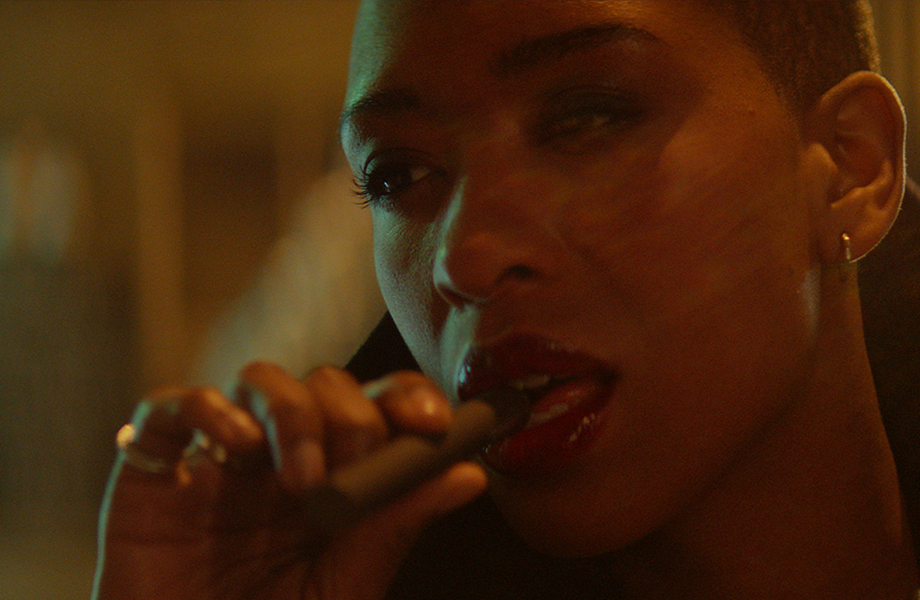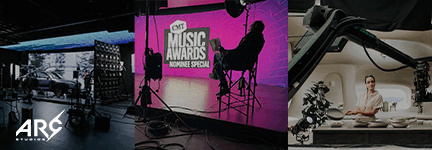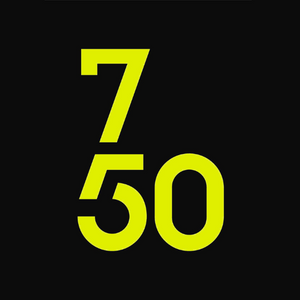
Director Alice Trueman on Her Vision and Influence for Latest Short ‘The Cost of Living’

The Cost of Living is a surreal, comedy-noir about waking up to life: When Lily, a disconnected, neurotic, ‘wellness'-freak, has a brush with death, she comes face-to-face with her greatest fear.
This is the latest short film from director, writer and editor Alice Trueman; the first two having been screened at several prestigious festivals including BFI Flare, Encounters Film Festival and London Short Film Festival. Alice has been awarded by the BFI for ‘New Filmmaking Talent’ and her short film ‘Jas’ won ‘Best Foreign Film’ at City of Angels’ Women’s Film Festival in LA. Alice spoke with 750mph to discuss her vision and influence for her latest short. Readers, be mindful that this contains plot spoilers; those wishing to watch the film beforehand can do so on the link below.
Q> What was your inspiration behind this film?
Alice> I’ve always had this acute awareness of death lurking in the doorway of every room of life. Sometimes I find it extraordinary that people keep pushing on with their lives so faithfully in this knowledge. I wondered how it might feel if I repackaged death in my mind’s eye as a force for freedom rather than oppression.
When you lose someone it can really wake you up to the majestic power of life. It’s amazing how we can go around on autopilot, distancing ourselves from the reality of what awaits, these subtle elements of control which we pad out our lives with, as if trying to get back to the perfectionism of our pre-birth state, or at least to distance ourselves from the reality of life’s mess and unpredictability, from the fragility all around. But of course that mutability is also what’s beautiful, it’s why we care about anything at all. I’m fascinated by all these paradoxes, by the binary structures that the west has trapped itself with. Nothing truly makes sense in the binary and yet without these boxes we have no way to orientate ourselves, we find ourselves in this formless mess and that’s too much for the mind to compute.
I think a lot of filmmaking for me is the slow unfurling of a central idea or image until it begins to take authorship. There was something in the sexiness and queerness of a tension between a young woman and a personification of Death as a femme fatale that I kept revisiting in my mind, I don’t know where it came from but it started to make more sense as I developed it. But I tend to overcomplicate my stories if I’m not careful so actually it was about revisiting this central conceit and allowing it to be seen in its simplicity too.
Q> What influences have shaped you as a director / this film in particular?
Alice> This short is sort of like the first sentence in a longer narrative that I’ve been developing for a little while now. It is influenced by all the things! - philosophy, art, music, something I might read or hear, thoughts around identity and self-hood, dreams, and of course other directors’ work. For the short, my DOP Lorena Pages and I, were really inspired by the visuals of Ingmar Bergman, Xavier Dolan and Celine Sciamma in particular.
Darren Aronofsky was another influence for me in terms of the sound design which I wanted to feel very visceral. I think James Cobbold at 750mph did a really great job at that and at creating an uneasy sound design. I really admire the way David Lynch uses sound, Eraserhead made a big impact on me in that regard and it’s something I want to explore more in future.
Music was a big deal for this short too - you need to cover so much emotional ground relatively quickly and music is such a powerful transportive tool for that. The score, which was composed by Kerry Leatham, was hugely important in terms of informing the tone of the film and I was inspired so much by Mica Levi’s glorious work in Under The Skin to bring about a kind of uncanny, seductive and creepy vibe all at once. It’s like rapture in sound.
Similarly Boy Harsher’s Move Closer had all the right sexiness and darkness and euphoria I was after. And I was so happy to find DeBussy’s Reverie - I don’t know much about classical music and stumbled across it by accident. It’s the perfect fit, so heady and dreamy, exactly right.
As a director I feel I am still very much growing and developing my style. Growing up I’ve enjoyed so many different types of films but I suppose those with a kind of philosophical backbone have changed me most - Wim Wenders’ Wings of Desire, Richard Linklater’s Waking Life, Bergman’s The Seventh Seal and Persona, for instance, and many more besides. I also get a lot out of the surreal and odd, often dark humour which I suppose is hitting on the absurdity of the human condition - Terry Gilliam’s Brazil was like nothing I’d ever seen, and, coming from a theatre background Edward Albee’s The American Dream, and all of Samuel Beckett and Pinter’s plays, all left a huge impression and continue to feed the direction I want to move in as a filmmaker.
Q> Were there any challenges that were difficult to navigate around during the creative process?
Alice> Oh yeah hundreds! It’s part of it really, I’m such a perfectionist in life that I get a kind of perverse thrill from making films as there’s so very much that can go wrong and it usually does! There’s something oddly freeing in that too though. It stops you getting too fixed on your ideas, you have to give over to a kind of trust that things will work out the way they should - you can’t get too precious about anything and actually often if you stay in that ready state where you’re a bit flexible it can sometimes carry you to more interesting creative territory.
For instance, the club scene in The Cost of Living was supposed to be shot with about 30+ clubbers but whilst we were filming Covid was fast becoming a genuine concern and we ended up taking the difficult decision to cancel the extras. It meant that on the morning of the shoot I was redrawing shotlists and re-envisaging my way into the scene. But in fact, by being forced to look at it afresh in these last minute moments, I came to realise that the scene could be all the stronger for this change - that the surreal and heightened elements of the film allowed for a flight from reality in this moment and would in fact be all the stronger for it.
Aesthetically it was also a positive as it allows us to properly appreciate the full shape of Joshua Hubbard’s choreography as well as giving the spotlight to professional dancers throughout the scene which created a more compelling connection to Lily, who really comes to life in this scene. Lily Loveless gives such a great performance here and it is a big moment of transformation for the character so ultimately I’m really glad we were forced to move the focus intimately onto her because it made the scene mean so much more and taught me a lot as a director actually. It also meant we didn’t accidentally create a covid-cesspit, so yeah, I’ve learned that rolling with the punches and trusting in fate can sometimes mean you ultimately avoid a car crash!
750mph sound engineer James Cobbold provided the sound design on this surreal short. He added: “The Cost of living was great fun to work on. I had to create a mood which shifted between being very clinical and controlled, to one of tense, charged energy. I enjoyed getting creative using elements from the dialogue to enhance the key music track. Alice was great fun to work with, she's created a fantastic short film.”
This creative roster is held firmly in place by producers Katie Hodgkin and Alex Hurle. Katie and Alex are both decorated producers, receiving acclaim from the BFI and numerous festivals. The duo previously collaborated on the documentary ‘ THE BANKSY JOB’ and have now brought forward this superb film starring SKINS star Lily Loveless and stage veteran Genesis Lynea.
The film premiered on Wednesday 17th March, on BFI Player; and will be available to watch for a subsequent 10 days.













